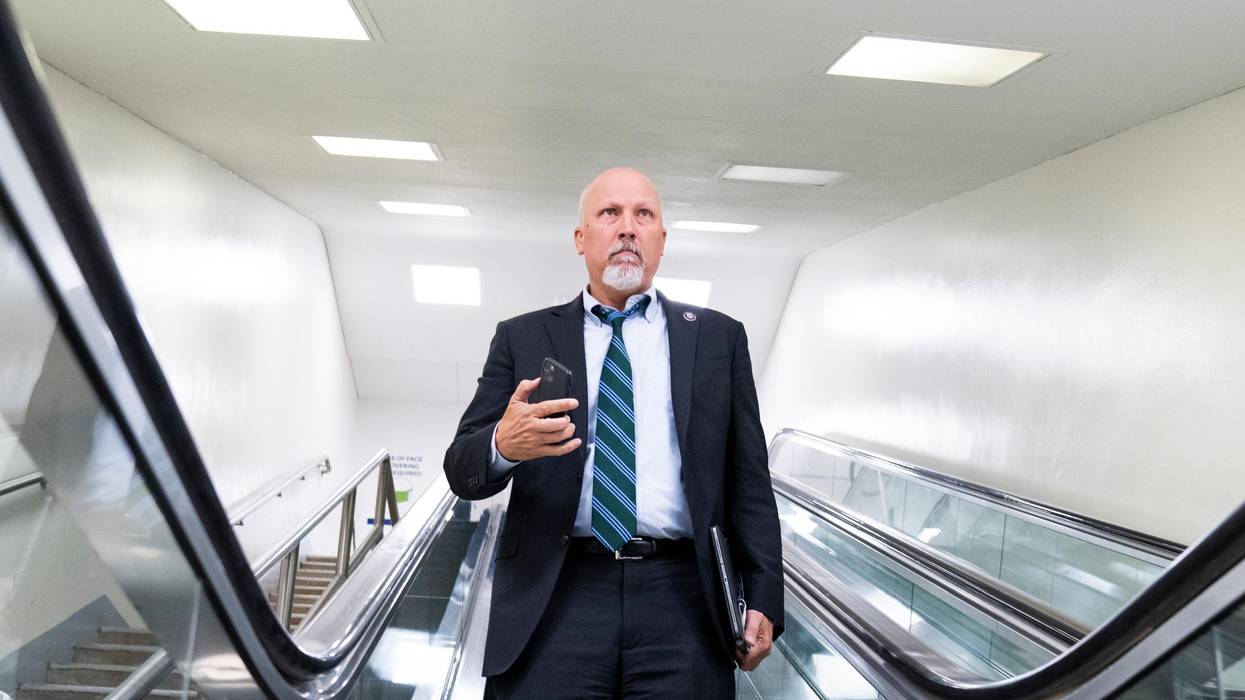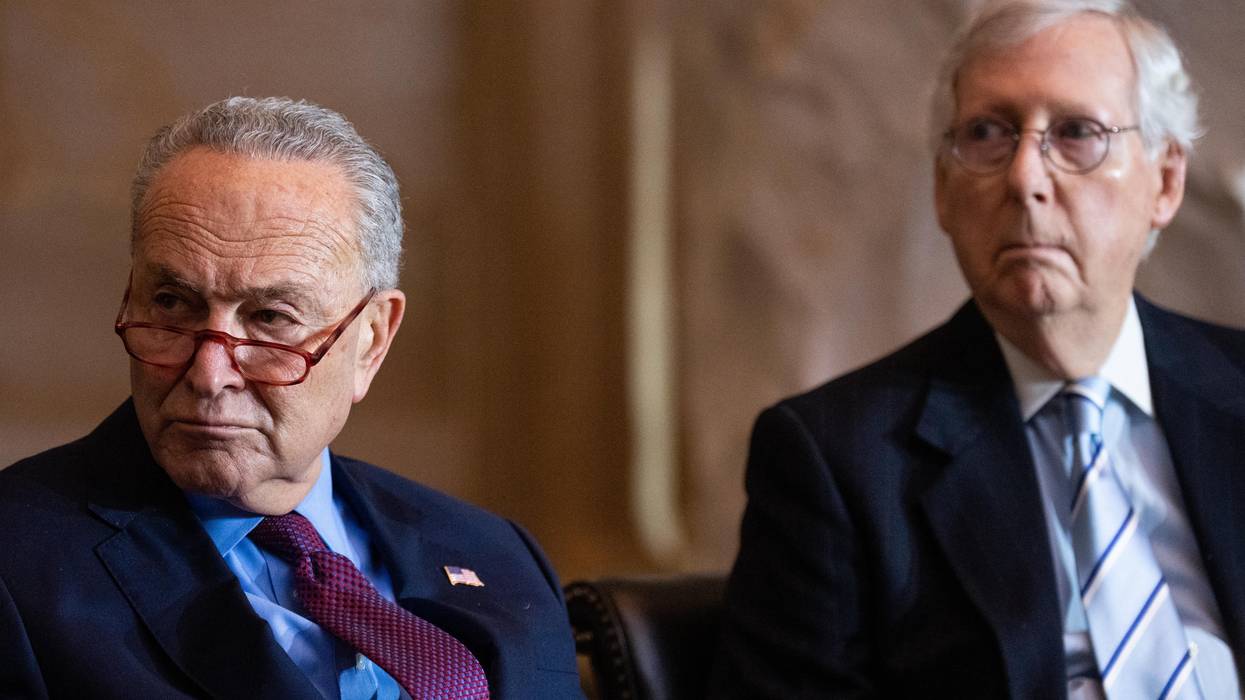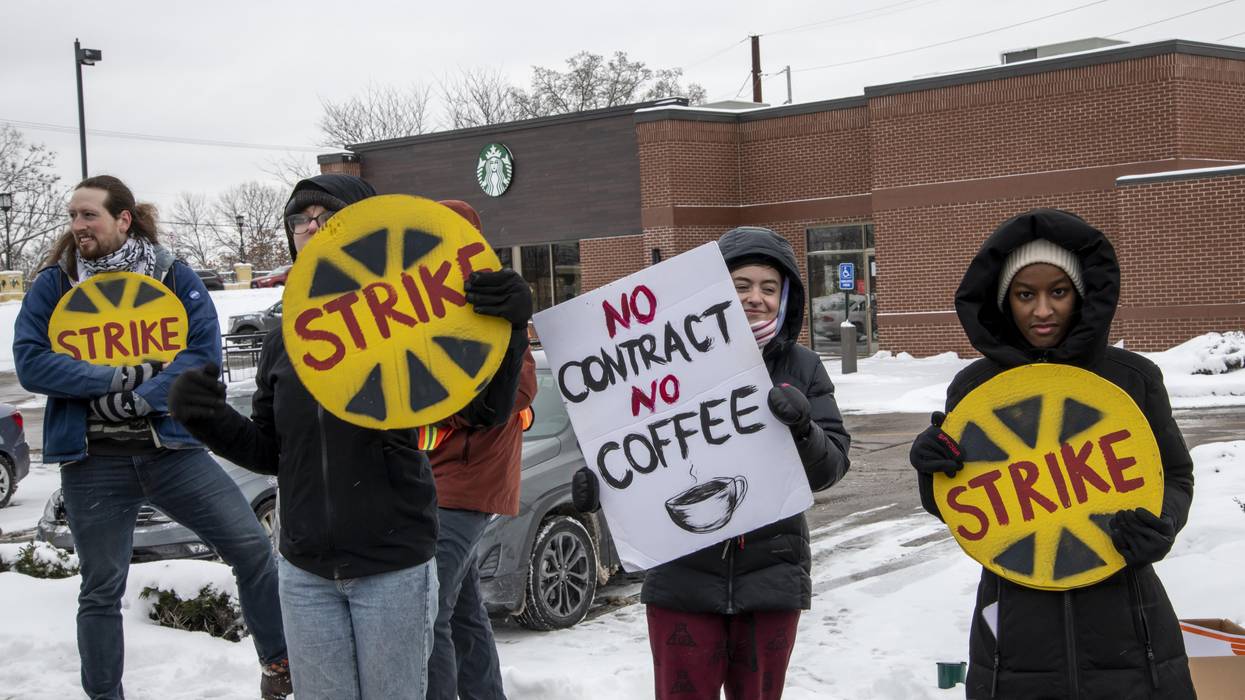House GOP Using Omnibus Fight as 'Trial Run' for Ploy to Cut Social Security and Medicare, Critics Warn
"MAGA extremists in Congress are dusting off an old conservative playbook for when they seize power," said one progressive watchdog.
The U.S. House of Representatives on Friday passed a $1.7 trillion government funding package to avert a partial shutdown, but not before hearing the vocal objections of far-right Republicans who have signaled their plans to pursue spending cuts—specifically targeting Social Security and Medicare—once they take control of the chamber next month.
Leading up to the Senate's vote Thursday to send the omnibus to the House, dozens of Republicans spearheaded by Rep. Chip Roy of Texas urged their colleagues in the upper chamber to "use every tool possible to kill this bill," raising well-worn complaints about the national debt and threatening to do all they can to obstruct ordinary congressional business in the next session.
"If any omnibus passes in the remaining days of this Congress, we will oppose and whip opposition to any legislative priority of those senators who vote for its passage—including the Republican leader," Roy and 30 other House Republicans wrote in a letter to the Senate GOP on Wednesday. "We will oppose any rule, any consent request, suspension voice vote, or roll call vote of any such Senate bill, and will otherwise do everything in our power to thwart even the smallest legislative and policy efforts of those senators."
House Minority Leader Kevin McCarthy (R-Calif.), who is
fighting to become the next speaker, endorsed the threat from the Republican group, which had hoped to delay work on the omnibus until the GOP assumed control of the House.
To progressive watchdogs, the House GOP's fervent campaign against the must-pass spending package offered a preview of how Republicans will wield their majority in the lower chamber to wreak havoc and pursue longstanding right-wing policy goals in 2023.
"MAGA extremists in Congress are dusting off an old conservative playbook for when they seize power—using the deficit they created with irresponsible tax breaks for billionaires and greedy corporations as an excuse to gut Social Security and Medicare benefits for America's seniors and working people," said Liz Zelnick, director of the Economic Security and Corporate Power program at Accountable.US.
The watchdog group cautioned that House Republicans are using the omnibus as "a trial run."
"The same MAGA Republicans feigning indignation about spending today stood silent as their deficit-busting Trump tax breaks rewarded highly-profitable corporations that have gouged working families on everything from gas to groceries," Zelnick added. "This is what Americans are in store for next year: MAGA extremists serving the interests of billionaires, profiteering corporations, and other special interests while asking everyone else to pay for it."
Ahead of the 2022 midterms, a number of House Republicans—including McCarthy—made clear they would be willing to use every opportunity to push for cuts to Social Security, Medicare, climate investments, and more, even if it means holding the federal government and the entire U.S. economy hostage.
And they may have two major opportunities to do so in the coming year.
The omnibus that the House approved Friday only funds the government through September 2023, setting up another spending battle that Republicans will likely attempt to use as leverage to enact elements of their deeply unpopular agenda, which includes possible Medicare benefit cuts and Social Security privatization.
A looming fight over the debt ceiling—which Democratic congressional leaders have failed to defuse despite urgent pleas from rank-and-file lawmakers and progressive campaigners—could give Republicans another chance to inflict harmful spending cuts, as they did during the debt ceiling showdown of 2011.
The U.S. government is set to reach the debt limit—an arbitrary figure set by Congress that dictates how much money the Treasury Department can borrow to meet its obligations—as soon as early 2023.
"This is what Americans are in store for next year: MAGA extremists serving the interests of billionaires, profiteering corporations, and other special interests while asking everyone else to pay for it."
President Joe Biden, who has in the past advocated Social Security cuts, pledged in October to oppose any GOP attack on the program.
"The Republican leadership in Congress has made it clear they will crash the economy next year by threatening the full faith and credit of the United States for the first time in our history, putting the United States in default, unless, unless, we yield to their demand to cut Social Security and Medicare," Biden said in a speech at the White House. "Let me be really clear: I will not yield. I will not cut Social Security. I will not cut Medicare, no matter how hard they work at it."
Mary Small, chief strategy officer for Indivisible, said Thursday that House Republicans' response to the omnibus foreshadows "what much of next year will look like: MAGA Republicans, desperate to out-extreme each other, ignoring the needs of everyday people."
"Their track record—from the January 6th select committee to this eleventh-hour funding bill—proves that they won't be partners in governance," said Small.


